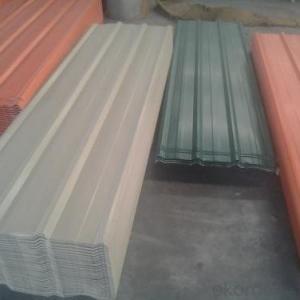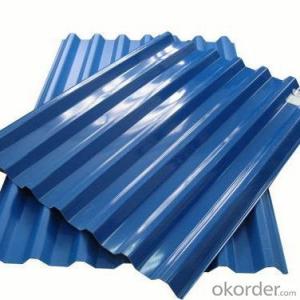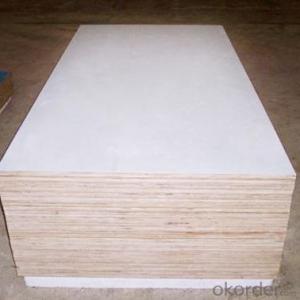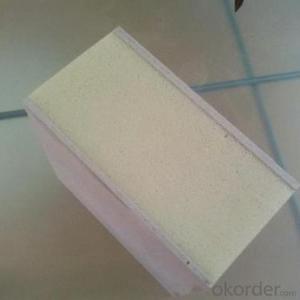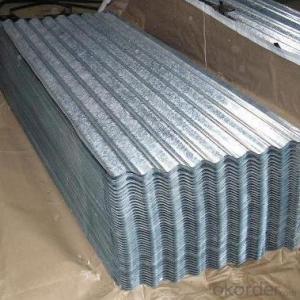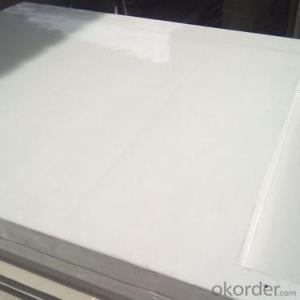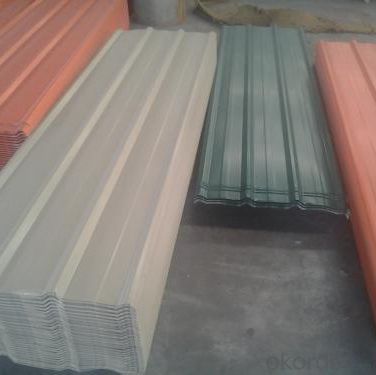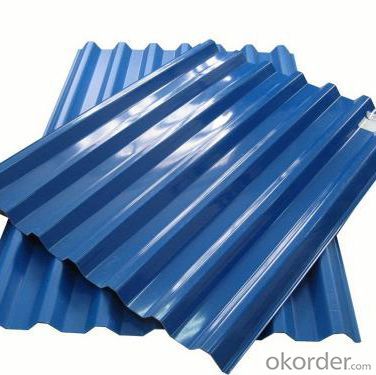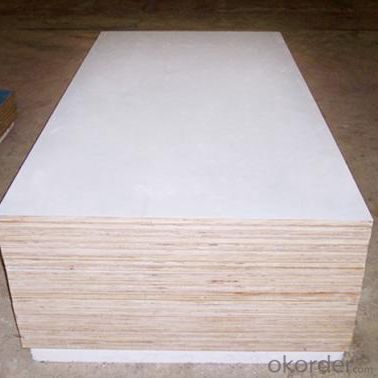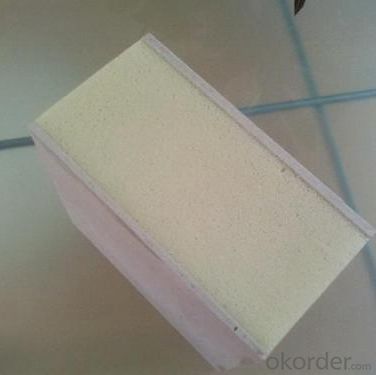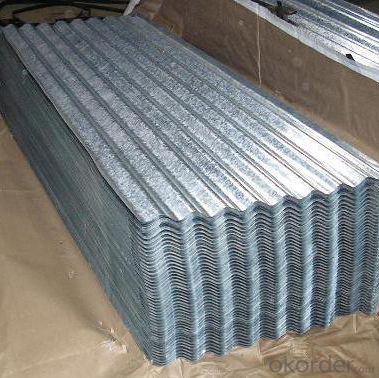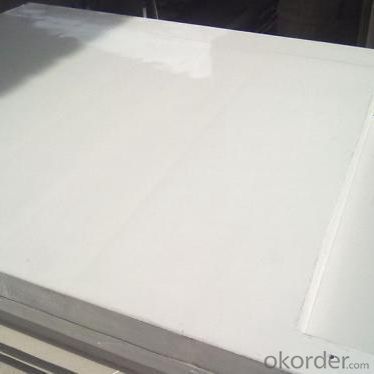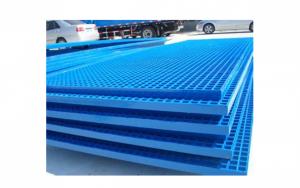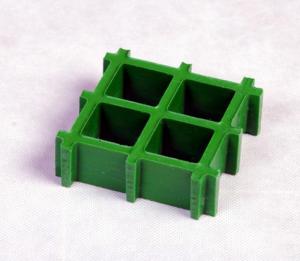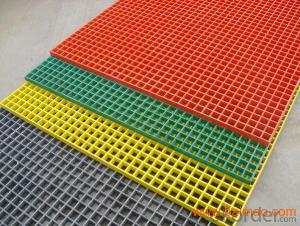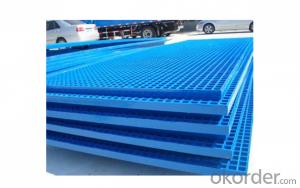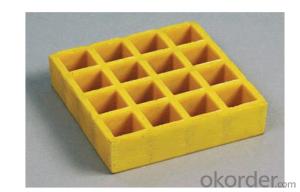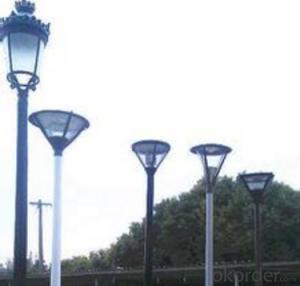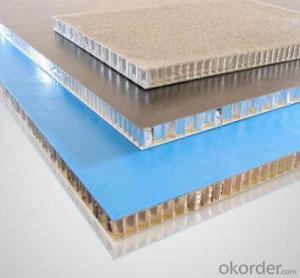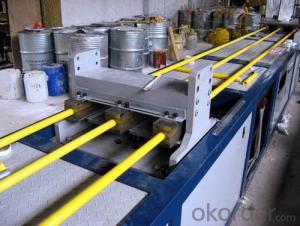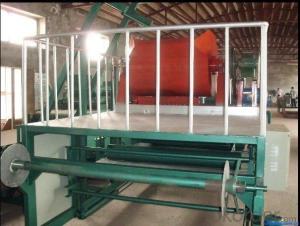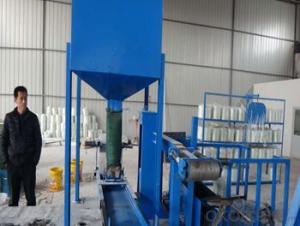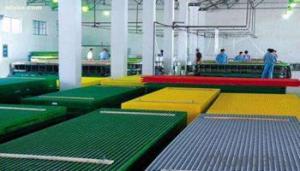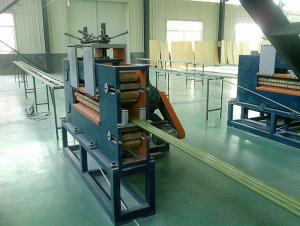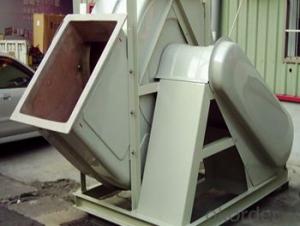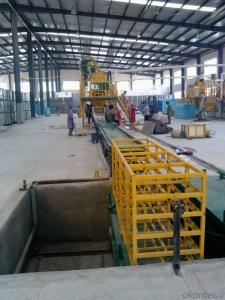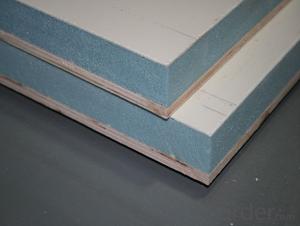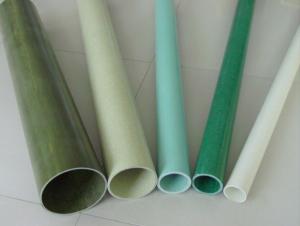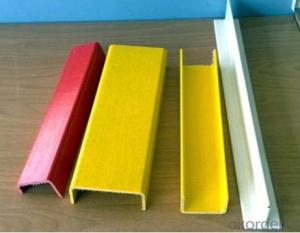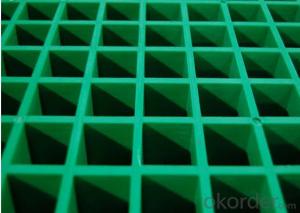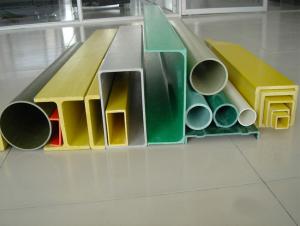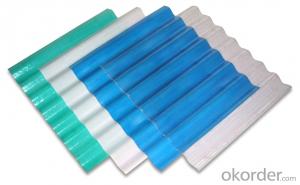FRP Pultrusion Profiles - Pultruded Grating with Anti-Flammable Properties
- Loading Port:
- Tianjin
- Payment Terms:
- TT OR LC
- Min Order Qty:
- 4000 m.t.
- Supply Capability:
- 100000 m.t./month
OKorder Service Pledge
OKorder Financial Service
You Might Also Like
Specification
PRODUCT DESCRIPTION
Pultruded grating is made by a particular assembly process, which using “I” shape as its main load-bearing and special rod to go through the bearing bar. Pultruded grating include the standard grating and the custom grating, the custom grating can be designed to meet customer’s requirement or special using condition by changing the shape, size and space of the bearing bars, the surface can be covered with lozenge panel, grit panel, or added the anti-slippery sand directly.
FRP pultruded grating has the most characteristics of molded grating, but it has its distinct advantages, it has very high fiberglass content in the loading direction, so it has very high load capability, it has more superiority when used at wide span, so that the basic support will be decreased and the project cost will be reduced accordingly.
SPECIFICATION
Thickness (mm) | Bar width (mm) | Open space (mm) | Open rate (%) | Approx weight (kg/m |
25.4 | 15.2 | 22.8 | 60 | 13.2 |
25.4 | 15.2 | 15.2 | 50 | 15.9 |
25.4 | 15.2 | 10.1 | 40 | 18.5 |
25.4 | 40 | 10.8 | 21 | 14.5 |
38.1 | 15.2 | 22.8 | 60 | 15.8 |
38.1 | 15.2 | 15.2 | 50 | 19.1 |
38.1 | 15.2 | 10.1 | 40 | 22.4 |
50.8 | 25.4 | 25.4 | 50 | 16.6 |
50.8 | 25.4 | 12.7 | 33 | 21.1 |
CHOICE FOR PULTRUDED GRATING
Resin: GP resin, ISO resin, VE resin, Phenol resin
Color choice: Yellow, gray, green, custom color
Surface choice: Groove surface, grit surface, lozenge cover surface
FEATURES
a. Anti-corrosion and anti-rust
b. Light weight and high strength
c. Anti-flammable
d. Anti- fatigue
e. Safe and anti-slippery
f. Anti-ageing
g. Easy of maintenance
h. Excellent electromagnetism property
i. Good economic benefit
FIELDS SERVED
Sewage treatment,
water supply and drainage,
chemical industry,
oil industry,
power engineering,
pulp and paper,
construction engineering,
spinning, marine engineering.
APPLICATION
Operation terrace,
stair walkway,
ground floor,
trench cover,
sidewalk,
foot bridge,
equipment safety fence,
scaffold.
COMPANT DESCRIPTION
CNBM,China National Building Materials Group is a state-owned enterprise in charge of administrative affairs in china building materials industry. Established in 1984, CNBM is a large group corporation of building materials with total assets of 25 billion RMB and a total staff of 30,000.CNBM now owns 200 subordinating firms of solely owned and joint-venture companies.
CNBM International Corporation is one subsidiary of CNBM, we focus on offering good-quality products,professional service and complete solution to our customers. Strong delivery capacity, advanced technology& management, strong financing capability and excellent after-sale service are our advantages in sharing international market.
FAQ
1.Q:Are you factory or trading company ?
A:We are Factory produce FRP machines and FRP products.
2.Q:If can customized by customers requirements?
A:yes,we can produce the machine with customized size.
3.Q:How about the payment?
A:We accept any kind of payment.
4.Q:What is the guarantee?
A:Gurantee is one year.
5.Q:If you can training?
A:yes ,we can training in our factory also can send engineers to your factory training.
PICTURES
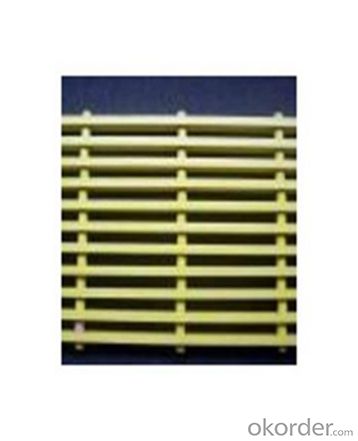
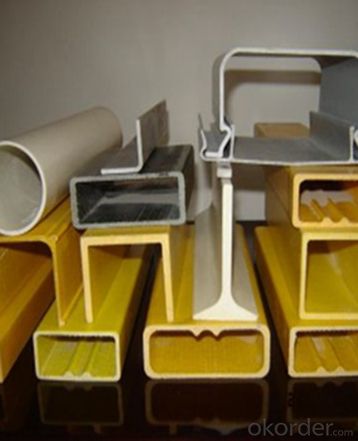
- Q: Can FRP pultrusion profiles be used in water treatment plants?
- Yes, FRP (Fiber Reinforced Polymer) pultrusion profiles can be used in water treatment plants. FRP pultrusion profiles offer several advantages that make them well-suited for use in this industry. Firstly, FRP pultrusion profiles are highly corrosion resistant. Water treatment plants often have aggressive environments with exposure to chemicals and moisture, which can cause corrosion and degradation of traditional materials like steel. However, FRP pultrusion profiles are immune to corrosion, making them an ideal choice for water treatment applications. Secondly, FRP pultrusion profiles have excellent strength-to-weight ratios. This means that they provide high structural integrity while being lightweight, making them easier to handle and install in water treatment plants. Additionally, their high strength allows them to withstand the loads and pressures typically encountered in these environments. Furthermore, FRP pultrusion profiles are electrically non-conductive. This is particularly advantageous in water treatment plants, where there may be a need to isolate electrical equipment or components to prevent short circuits and protect personnel. FRP profiles provide a safe and reliable solution in such cases. Lastly, FRP pultrusion profiles have a long service life with minimal maintenance requirements. They do not rot, rust, or corrode, ensuring durability and longevity even in harsh water treatment conditions. This reduces downtime and maintenance costs, making FRP profiles a cost-effective choice for water treatment plant applications. Overall, FRP pultrusion profiles are an excellent choice for use in water treatment plants due to their corrosion resistance, high strength-to-weight ratio, electrical non-conductivity, and long service life. Their use can contribute to improved efficiency, reduced maintenance, and increased durability in water treatment processes.
- Q: Are FRP pultrusion profiles resistant to high winds or hurricanes?
- Yes, FRP (Fiber Reinforced Polymer) pultrusion profiles are highly resistant to high winds and hurricanes. FRP is a composite material that combines the strength of fiberglass with the durability of polymers. This results in a lightweight yet incredibly strong material that can withstand extreme weather conditions. FRP pultrusion profiles have been extensively tested and have proven to have excellent wind resistance properties. They have a high stiffness-to-weight ratio, allowing them to withstand the forces exerted by high winds without bending or breaking. Additionally, the inherent flexibility of FRP allows it to absorb and distribute the forces exerted by wind, reducing the risk of damage. In the case of hurricanes, FRP pultrusion profiles have demonstrated their ability to withstand the strong winds and flying debris associated with these severe weather events. They have been used in various applications such as building facades, bridges, and utility poles in hurricane-prone areas, with great success. Furthermore, FRP pultrusion profiles are corrosion-resistant, which is another advantage when it comes to withstanding high winds and hurricanes. Unlike traditional materials like steel or wood, FRP profiles do not rust or rot when exposed to moisture, making them even more suitable for these challenging weather conditions. Overall, due to their high strength, durability, flexibility, and corrosion resistance, FRP pultrusion profiles are an excellent choice for applications where resistance to high winds or hurricanes is required.
- Q: Can FRP pultrusion profiles be used in the construction of water treatment plants?
- Water treatment plants can utilize FRP (Fiber Reinforced Polymer) pultrusion profiles. These profiles possess several advantages that render them suitable for this purpose. To begin with, FRP pultrusion profiles exhibit resistance to corrosion. Water treatment plants encounter various corrosive substances, such as chemicals and moisture. Traditional materials like steel and concrete can degrade over time due to corrosion, resulting in maintenance complications and potential structural failures. Nevertheless, FRP pultrusion profiles possess a high resistance to corrosion, ensuring prolonged durability and reduced maintenance expenses. Furthermore, FRP pultrusion profiles are lightweight and possess high strength-to-weight ratios. This characteristic facilitates easy handling and transportation while maintaining structural integrity. Water treatment plants often necessitate structural components that can endure heavy loads and support equipment. FRP pultrusion profiles supply the required strength without adding excessive weight, making them an ideal choice for such applications. Additionally, FRP pultrusion profiles are non-conductive and possess exceptional electrical insulation properties. This attribute proves critical in water treatment plants where electrical apparatus and wiring are present. The non-conductive nature of FRP aids in preventing electrical hazards and guarantees safe operation. Moreover, FRP pultrusion profiles can be customized to fulfill specific design requirements. They can be manufactured in various shapes and sizes, allowing for design and construction flexibility. This adaptability renders FRP pultrusion profiles appropriate for a wide array of applications within water treatment plants, including structural supports, walkways, handrails, and equipment enclosures. In conclusion, FRP pultrusion profiles represent an exceptional option for the construction of water treatment plants due to their corrosion resistance, lightweight yet robust nature, electrical insulation properties, and customization possibilities. They provide long-lasting durability, reduced maintenance costs, and enhanced safety, thereby constituting a reliable and efficient solution for this critical infrastructure.
- Q: Are FRP pultrusion profiles resistant to automotive fluids?
- Yes, FRP pultrusion profiles are generally resistant to automotive fluids. FRP stands for Fiber Reinforced Polymer, which is a composite material made up of a combination of fibers and a polymer matrix. The fibers used in FRP, such as fiberglass, carbon, or aramid, provide excellent resistance to many automotive fluids, including oils, fuels, and coolants. The polymer matrix used in FRP profiles is typically a thermosetting resin, such as polyester, vinyl ester, or epoxy. These resins are known for their chemical resistance properties, making FRP pultrusion profiles highly resistant to a wide range of automotive fluids. They can withstand exposure to various fluids without experiencing significant degradation or loss of mechanical properties. It is important to note that the specific resistance of FRP pultrusion profiles to automotive fluids may vary depending on the type of resin used and the specific composition of the composite material. Therefore, it is recommended to consult with the manufacturer or supplier of the FRP profiles to ensure they are suitable for the intended application and the specific automotive fluids they will be exposed to.
- Q: What is the torsional strength of FRP pultrusion profiles?
- The torsional strength of FRP pultrusion profiles can vary depending on the specific composition and design of the profile. However, in general, FRP pultrusion profiles tend to have high torsional strength due to the inherent properties of the fiber-reinforced polymers used in their construction. These materials are known for their excellent resistance to torsional forces, which makes FRP pultrusion profiles suitable for applications requiring high torsional strength.
- Q: Can FRP pultrusion profiles be used in the construction of train or subway platforms?
- Yes, FRP pultrusion profiles can be used in the construction of train or subway platforms. FRP (Fiber Reinforced Polymer) offers excellent strength, durability, and corrosion resistance, making it suitable for high-traffic areas like train or subway platforms. Additionally, FRP pultrusion profiles can be customized to meet specific design requirements, making them a versatile choice for platform construction.
- Q: Can FRP pultrusion profiles be used in the water treatment industry?
- Yes, FRP pultrusion profiles can be used in the water treatment industry. FRP (Fiber Reinforced Plastic) offers excellent corrosion resistance and durability, making it suitable for various applications in water treatment plants. FRP pultrusion profiles can be used in the construction of water tanks, pipes, pumps, and other equipment, providing a lightweight and high-strength alternative to traditional materials like steel. Additionally, FRP profiles are non-conductive and have low thermal conductivity, making them ideal for applications involving chemicals and extreme temperature variations commonly found in water treatment processes.
- Q: Can FRP pultrusion profiles be used in the agricultural and farming industry?
- Yes, FRP pultrusion profiles can certainly be used in the agricultural and farming industry. FRP (Fiber Reinforced Polymer) pultrusion profiles are known for their high strength, durability, and resistance to corrosion, making them ideal for outdoor and harsh environments such as those found in the agricultural and farming industry. These profiles can be used for various applications in agriculture and farming, including: 1. Fencing and enclosures: FRP pultrusion profiles can be used to create sturdy and long-lasting fences, gates, and enclosures for livestock and crop protection. The profiles are resistant to rot, rust, and insect damage, providing a reliable barrier for animals and crops. 2. Structural components: FRP pultrusion profiles can be used as structural components in agricultural buildings, sheds, and greenhouses. Their high strength-to-weight ratio allows for the construction of lightweight and durable structures that can withstand extreme weather conditions. 3. Irrigation systems: FRP pultrusion profiles can be used in the construction of irrigation systems, such as pipes, channels, and culverts. These profiles are non-corrosive and have a smooth interior surface, reducing friction and improving water flow efficiency. 4. Equipment support and framing: FRP pultrusion profiles can be used to provide support and framing for various agricultural equipment, such as conveyors, platforms, and machinery. Their high strength and stiffness make them suitable for heavy-duty applications. 5. Animal housing and equipment: FRP pultrusion profiles can be used to construct animal housing and equipment, such as pens, stalls, and feeding troughs. These profiles are resistant to chemicals, moisture, and UV radiation, ensuring a long lifespan and low maintenance requirements. In summary, FRP pultrusion profiles can be successfully utilized in the agricultural and farming industry due to their excellent mechanical properties, resistance to environmental factors, and versatility in various applications.
- Q: Are FRP pultrusion profiles resistant to saltwater corrosion?
- Yes, FRP (Fiber Reinforced Plastic) pultrusion profiles are highly resistant to saltwater corrosion. The corrosion resistance of FRP profiles is one of their key advantages over traditional materials such as steel or aluminum. The combination of the reinforcing fibers and the resin matrix used in FRP pultrusion profiles makes them inherently resistant to the corrosive effects of saltwater. FRP profiles are composed of a mixture of glass or carbon fibers embedded in a thermosetting resin. These materials do not react with saltwater, preventing the corrosion that occurs in metals when exposed to saltwater for an extended period. Additionally, the resin matrix used in FRP profiles provides a protective barrier that further prevents saltwater from reaching the reinforcing fibers. The corrosion resistance of FRP pultrusion profiles makes them ideal for applications in marine environments. They are commonly used in structures such as seawalls, dock fenders, offshore platforms, and marine vessels. The durability of FRP profiles in saltwater environments ensures long-term performance and reduces the need for frequent maintenance or replacement. However, it is important to note that while FRP pultrusion profiles are highly resistant to saltwater corrosion, they may still be affected by other factors such as UV radiation or chemical exposure. Therefore, it is essential to consider the specific environmental conditions and consult with manufacturers or experts to select the most suitable FRP profile for a particular application.
- Q: Can FRP pultrusion profiles be used in the construction of offshore platforms?
- Yes, FRP pultrusion profiles can be used in the construction of offshore platforms. FRP, or fiber-reinforced polymer, offers excellent corrosion resistance, high strength-to-weight ratio, and durability, making it suitable for the harsh marine environment. These profiles can be customized to meet the specific requirements of offshore platforms, providing structural support and stability while minimizing maintenance needs.
Send your message to us
FRP Pultrusion Profiles - Pultruded Grating with Anti-Flammable Properties
- Loading Port:
- Tianjin
- Payment Terms:
- TT OR LC
- Min Order Qty:
- 4000 m.t.
- Supply Capability:
- 100000 m.t./month
OKorder Service Pledge
OKorder Financial Service
Similar products
Hot products
Hot Searches
Related keywords
